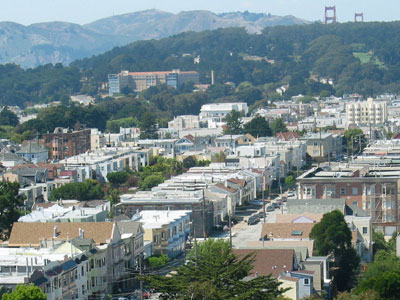
When it comes to taxes in California, our elected officials just can't seem to get enough. It seems like every time there is a budget shortfall, the immediate reaction is to increase taxes.
And it's not just the Sacramento lawmakers that are busy raising taxes. Here in San Francisco, despite claims that the budget won't include new taxes, the Mayor and Board of Supervisors are proposing to balance the budget on the backs of low-income residents and small businesses through a series of
new "fees" which are simply taxes by another name.Take for example, the cigarette litter abatement fee recently approved by the Board of Supervisors. The fee -- $0.20 cents per pack on cigarettes sold within the City -- is supposed to pay to clean up cigarette butts. Sounds like a good idea until you realize that:
- We already pay taxes to clean our streets;
- There are litter laws on the books that would raise revenue by fining those who actually throw cigarette butts onto the streets and sidewalks;
- The city will require retailers (mostly small businesses) to collect and report these taxes to a newly created city bureaucracy; and
- When you add in the recent federal tax increase of $.61 cents and the three proposed state tobacco taxes are enacted, the price of a pack of cigarettes may shoot up to over $10 dollars.
Will a tax on fast food wrappers and coffee cups be next? Where does it end? Given the alarming number of children and young adults developing Type 2 diabetes, a tax on soda and other products that contain corn syrup can't be far behind. And let's not forget alcohol. In a city that relies heavily on tourism to balance its budget, is it a good idea to continue to raise taxes on businesses that serve this industry? Has the city assessed the impact that increased fees for health care, alcohol and tobacco have on the service industry workforce?
At a time when city leaders are debating huge cuts in public safety and social services, we think it's a bad idea to create more bureaucracy to collect and administer new fees and taxes.
Businesses large and small are overwhelmed with local fees and taxes making San Francisco one of the most challenging places in which to survive. The financial well-being of our local business community should be of concern to everyone. They are what makes this city unique and sets us apart from the cookie-cutter suburbs that surround us. Moreover, they provide jobs and generate revenue for a vast number of vital city services.
It would be in everyone's interest to identify waste within the City system and simplify tasks or lumping similar tasks together to reduce administrative costs associated with producing various licenses and permits required by the business community.
Let's stop pretending that we’re balancing the budget without raising taxes. Let's stop targeting the business community with fees. It's time for city leaders to have an honest dialogue with the business community about how we can work together to identify waste, eliminate unnecessary city staff and reduce budgetary needs.
Rick Gomez is Chairman of the San Francisco Hispanic Chamber of Commerce. The original version of this article was edited for length.
